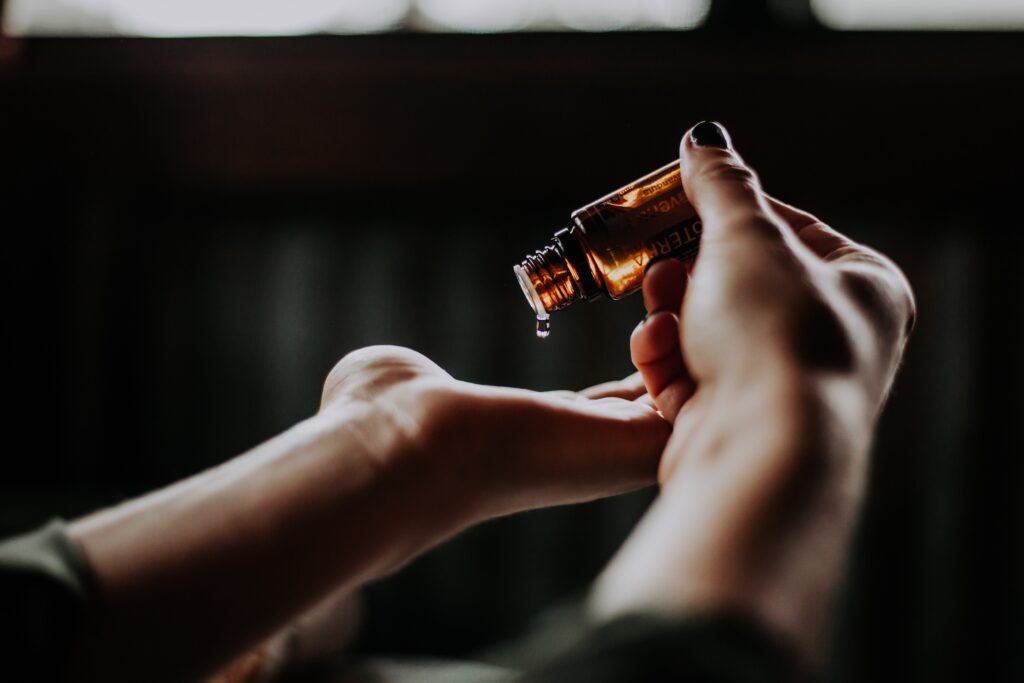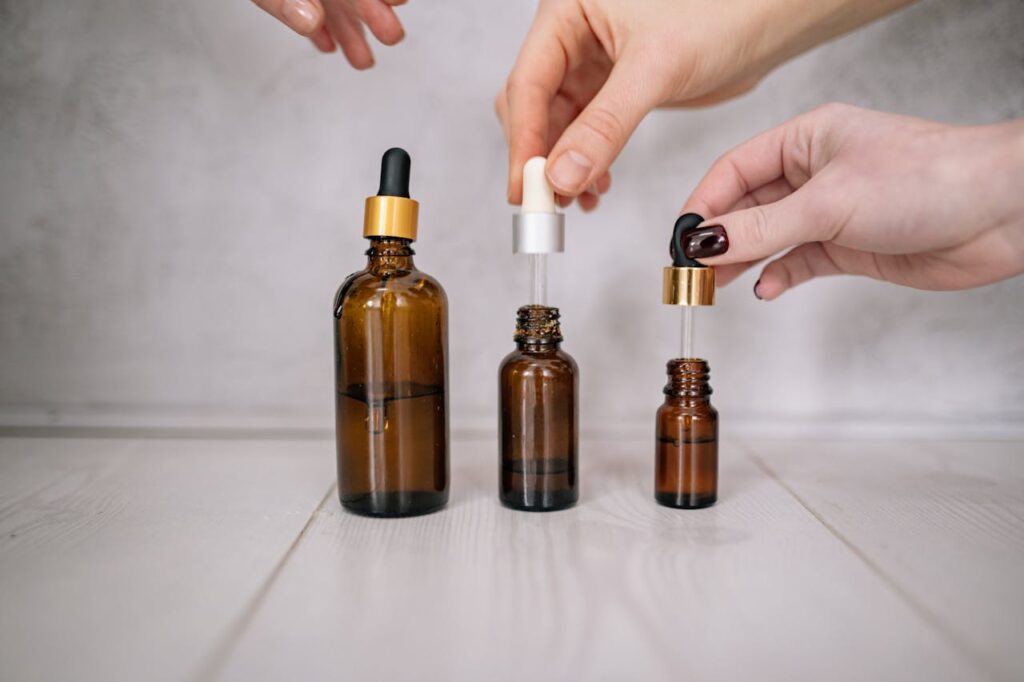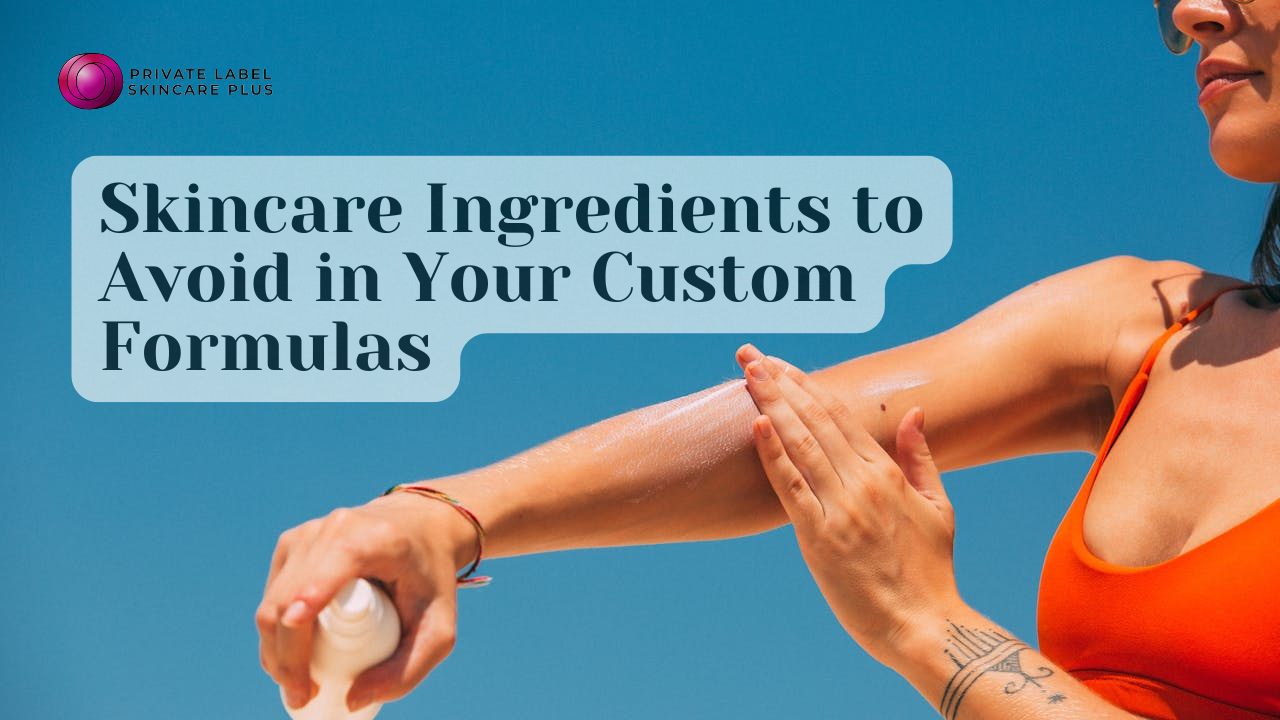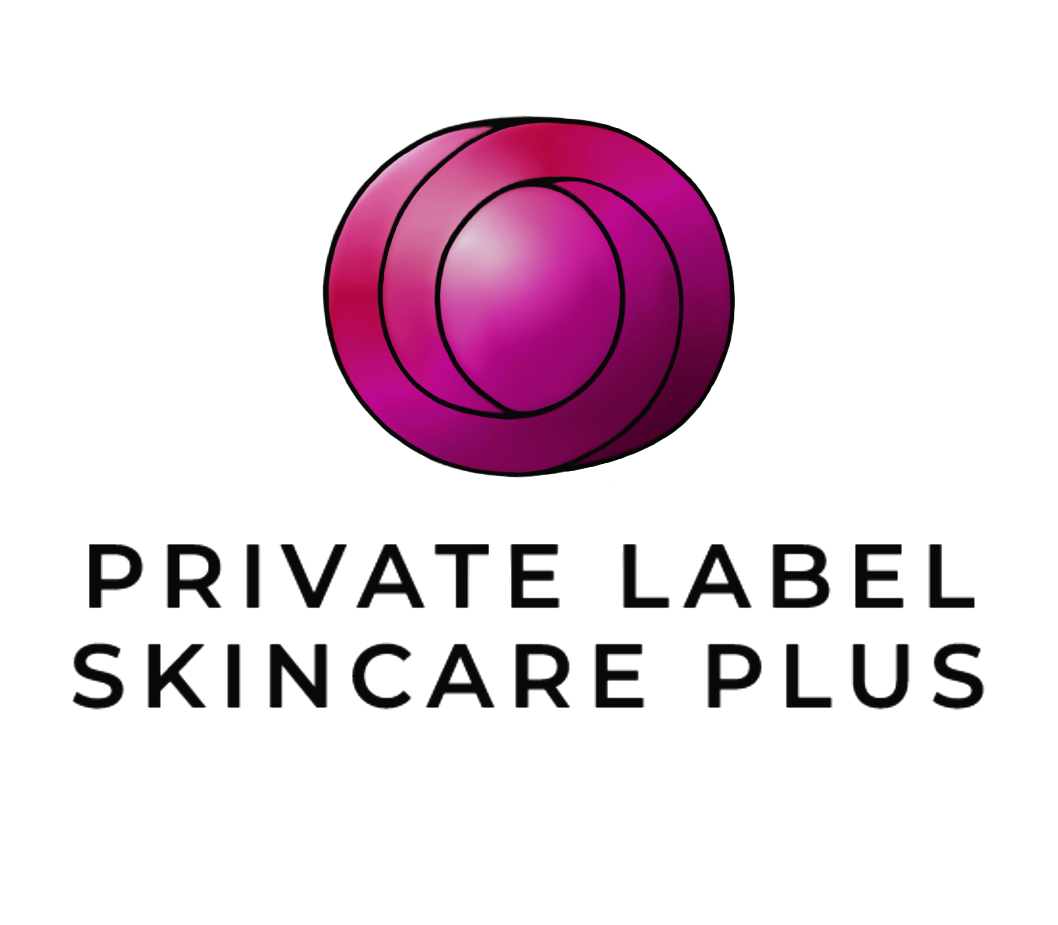In the pursuit of creating effective and safe skincare products, selecting the right ingredients is critical. While some ingredients elevate the performance of your formulations, others may pose risks to health, irritate the skin, or harm the environment. For brands creating custom skincare formulas, understanding which ingredients to avoid in skincare is a vital step toward building consumer trust and ensuring compliance with regulations.
In this article, we’ll explore the top ingredients to avoid in skincare, why they’re problematic, and how choosing safer alternatives can set your brand apart in the competitive beauty market.
Why Avoid Certain Ingredients in Skincare Formulas?
The global skincare industry is increasingly driven by informed consumers who prioritize safety, efficacy, and sustainability. Harmful ingredients to avoid in skincare not only risk regulatory non-compliance but can also damage your brand’s reputation. Whether the concern is potential toxicity, environmental harm, or allergenic properties, avoiding problematic ingredients ensures your products align with modern values and consumer expectations.
Brands that adopt a clean and transparent approach often gain a competitive edge, appealing to eco-conscious and health-focused buyers. By working with experienced private-label skincare manufacturers, you can create formulations that are both effective and free of harmful ingredients.
Top Skincare Ingredients to Avoid
1. Parabens
Parabens, including methylparaben and propylparaben, are widely used as preservatives to extend the shelf life of skincare products. However, they have been linked to hormonal disruptions due to their ability to mimic estrogen in the body. Studies suggest a potential association with reproductive issues and certain cancers, leading to increasing consumer demand for paraben-free products.
Alternative: Opt for natural preservatives like rosemary extract or advanced synthetic options like phenoxyethanol, which are considered safer.
2. Synthetic Fragrances
Synthetic fragrances are common in skincare products but are often labeled generically as “fragrance” or “parfum,” making it impossible to identify their specific components. Many synthetic fragrances contain phthalates, which can disrupt hormones, and are known to trigger allergies, asthma, or skin irritation.
Alternative: Use essential oils or plant-based fragrances to add a natural scent without the risks associated with synthetic chemicals.

3. Phthalates
Phthalates are often used to stabilize synthetic fragrances and enhance the texture of products. However, these compounds have been linked to endocrine disruption, developmental toxicity, and environmental pollution. The use of phthalates has been banned or restricted in many regions, making them a red flag ingredient for global formulations.
Alternative: Replace phthalates with non-toxic alternatives that meet safety standards while maintaining product performance.
4. Formaldehyde and Formaldehyde-Releasing Agents
Formaldehyde is a known carcinogen that has been phased out in many cosmetics but still appears in some formulations as a preservative. Ingredients like DMDM hydantoin, imidazolidinyl urea, and quaternium-15 release formaldehyde over time, posing risks of skin irritation, allergies, and long-term health concerns.
Alternative: Opt for preservatives like sodium benzoate or potassium sorbate, which are gentler on the skin and safer for consumers.
5. Sulfates
Sulfates, such as sodium lauryl sulfate (SLS) and sodium laureth sulfate (SLES), are common foaming agents found in cleansers and shampoos. While they effectively remove dirt and excess oil, sulfates can strip the skin’s natural barrier, leading to dryness, irritation, and sensitivity. Additionally, sulfates can be harmful to aquatic ecosystems when washed into waterways.
Alternative: Choose sulfate-free surfactants like coco-glucoside or decyl glucoside, which are milder and biodegradable.
6. Mineral Oil and Petroleum-Derived Ingredients
While mineral oil is a cost-effective emollient, it is derived from petroleum and can clog pores, leading to breakouts and dull skin. Some grades of mineral oil have also raised concerns about contamination with carcinogenic compounds.
Alternative: Use plant-based oils such as jojoba oil, argan oil, or shea butter, which offer hydration without the potential drawbacks.

How to Ensure Clean and Compliant Formulas
Creating clean skincare products requires a combination of research, expertise, and reliable manufacturing practices. Here are some steps to ensure your custom formulas meet safety and compliance standards:
- Partner with an Experienced Manufacturer: Collaborate with a private-label manufacturer that understands regulatory requirements and can guide ingredient selection.
- Research Regulatory Guidelines: Familiarize yourself with banned and restricted ingredients to avoid in skincare in your target markets to ensure compliance.
- Prioritize Transparency: Clearly label all ingredients and communicate your commitment to safety and sustainability to build consumer trust.
- Test for Safety and Efficacy: Conduct thorough testing to ensure your products are safe for use and deliver promised results.
Conclusion
The success of your skincare brand depends on the trust and satisfaction of your customers. Avoiding harmful ingredients to avoid in skincare not only ensures compliance with global regulations but also positions your brand as a leader in safety, transparency, and sustainability. By working with a reputable private-label skincare manufacturer, you can create custom formulas that align with modern consumer values and deliver exceptional results.
Ready to craft clean, effective skincare products? Private Label Skincare Plus is here to help. Contact us today to start creating formulations you can proudly stand behind.
FAQs
1. Why are parabens harmful in skincare?
Parabens may disrupt hormones by mimicking estrogen, potentially leading to reproductive issues and cancer. Many consumers prefer paraben-free products.
2. Are all synthetic fragrances bad for the skin?
Not all, but many synthetic fragrances contain allergens and phthalates, which can cause irritation and hormone disruption. Natural alternatives are safer.
3. What makes sulfates a problem in skincare?
Sulfates like SLS and SLES strip the skin of natural oils, leading to dryness and sensitivity. They also harm aquatic life when washed into waterways.
4. Why is mineral oil avoided in clean skincare?
Mineral oil can clog pores and may contain impurities linked to cancer. Plant-based oils are safer and offer similar moisturizing benefits.
5. What are safer alternatives to harmful skincare ingredients?
Safer alternatives include plant-based preservatives, natural oils, and biodegradable surfactants, which provide performance without harmful side effects.


